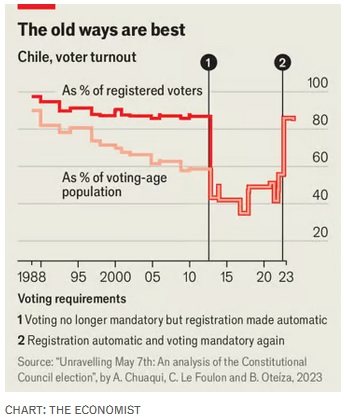The Public Arts Commission, the Pantherian, and Compulsory Voting
Cheers RVA!
Today will be sunny with a high of 72, with some clouds in the evening and a low of 52.
the juice:
The 4th Circuit Court of Appeals has unanimously upheld a federal judge's order restoring the registrations of 1,600 Virginia voters, whom the judge said were illegally purged under an executive order by Governor Younkgin.
Virginia’s Attorney General Jason Miyares has filed an emergency appeal to the Supreme Court.
Younkgin issued an executive order in August directing state officials to conduct daily updates to voter rolls.
The US Department of Justice, the League of Women Voters, and the Virginia Coalition for Immigrant rights filed lawsuits against the order, arguing it violated the National Voting Rights Act of 1993.
On Friday, a US District Judge agreed and ordered the state to restore the registrations. The Appeals Court upheld the ruling on Sunday.
The Washington Post has reported in Virginia over the past two years as few as three people have been prosecuted for illegal voting of any kind, with none of the cases involving citizenship.
the pulp:
The Kings Dominion roller coaster formerly known as Intimidator 305 will now be called the Pantherian.
Thalhimer Realty Partners will now lead the Diamond District development solo after Chicago-based Loop Capital bows out from the project, via Jonathan Spiers at Bizsense.
Tavares Floyd has lost endorsements from the Richmond Crusade for Voters and the Richmond Education Association after financial filings and his relationship to George Floyd have come into question, from Samuel Parker at the RTD.
Richmond’s “new” Public Arts Commission is currently accepting applications for the formal body that advises the City Planning Commission on design and location of public art projects, from Robin Schwartzkopf at RIC today. The commission has operated since 1991, but an ordinance passed last month by City Council established the body and defined its duties in city code.
the dive:
With the election approaching fast, the Economist dives into the concept of compulsory voting.
Roughly 3 out of 5 voting age citizens are expected to vote in the upcoming presidential election.
The article notes mandatory voting typically boosts the participation rate by 15 percentage points.
Of the 530 million people living in countries with mandatory voting, 343 million of those are in South America.
In Chile, for example, voting was mandatory until 2012, with voting rates (both % of registered voters and % of voting-age citizens) plummeting after the mandate was removed. Compulsory voting was reintroduced in 2022 and turnout skyrocketed.

Not all the effects of compulsory voting are positive, and there is little evidence of an increase in knowledge of issues or perception of legitimate governance.
But turnout does increase, and there are examples of compulsory voting being correlated with less inequality in Venezuela and Australia.
The Economist notes the effect on political parties as well:
The use of compulsory voting changes the behaviour of political parties too. In the freewheeling United States parties spend billions on glitzy ads to motivate their supporters to go out and vote; many would prefer a greater focus on policy programmes. Work by Shane Singh of the University of Georgia suggests that is exactly what happens when voting is mandatory. He also shows that compulsory voting in Argentina decreases the practice of “vote-buying”, whereby voters are paid cash to plump for a specific candidate.
Read the full article here.
the vibe:
Have a present day RVA!
Thanks for reading. Feel free to leave a comment. Help this newsletter grow by convincing a friend to subscribe.